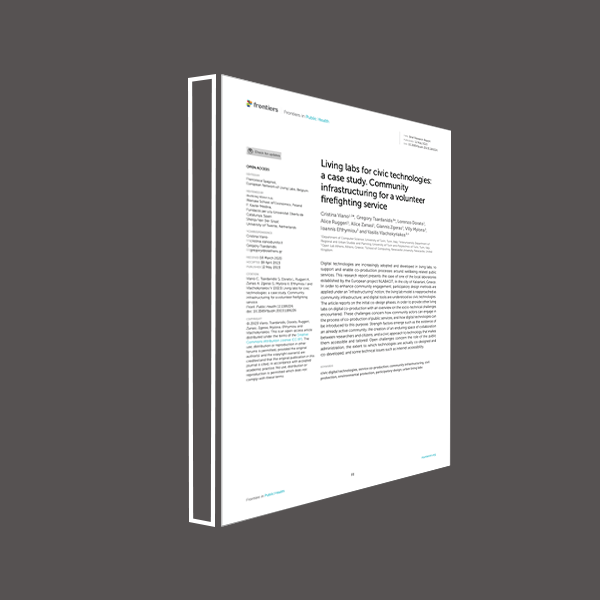Digital technologies are increasingly adopted and developed in living labs, to support and enable co-production processes around wellbeing related public services. This research report presents the case of one of the local laboratories established by the European project NLAB4CIT, in the city of Kaisariani, Greece. In order to enhance community engagement, participatory design methods are applied under an “infrastructuring” notion; the living lab model is reapproached as community infrastructure; and digital tools are understood as civic technologies. The article reports on the initial co-design phases, in order to provide other living labs on digital co-production with an overview on the socio-technical challenges encountered. These challenges concern how community actors can engage in the process of co-production of public services, and how digital technologies can be introduced to this purpose. Strength factors emerge such as the existence of an already active community, the creation of an enduring space of collaboration between researchers and citizens, and a civic approach to technology that makes them accessible and tailored. Open challenges concern the role of the public administration, the extent to which technologies are actually co-designed and co-developed, and some technical issues such as internet accessibility.
This paper was published at the Frontiers | Public Health and it is publicly available.
It’s a collaboration of Open Lab Athens together with the University of Turin, Italy
